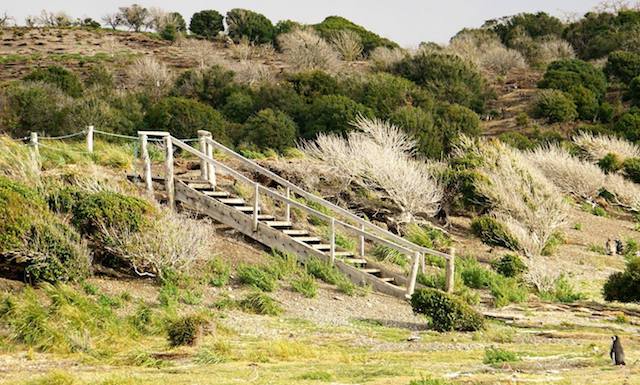
“In the end, we will remember not the words of our enemies, but the silence of our friends.”
~ Martin Luther King Jr.
~
This topic, of how to make a difference, has been “haunting” me for a few weeks, but it took the results of the U.S. elections to give it a whole new significance.
A few weeks ago, I posted this article on Facebook which outlines in heart-wrenching detail the suffering of children caught up in the Syrian conflict, in particular in the wake of the direct Russian involvement in the war.
In response to my post, I received a question:
“What can ordinary people like me and you do about this tragedy?”
What can we actually do beyond “facebook activism”?
I strongly believe that we each can personally make a difference in a number of ways. I’ll start with just a few:
- Maintain awareness, keep the conversation going! Then we have a chance to transform the “voice of a few” into the “voice of the people.” Awareness of the human tragedy behind the current displacement of so many people can change the conversation around migration away from protectionist fears and towards compassion and willingness to help.
- Exercise our democratic prerogatives: Vote, make our elected representatives accountable, call them to action. For anybody who is still sceptical that every vote matters, I hope that Brexit and the U.S. election dispelled that cynicism. We refer to the “right to vote,” but forget that the ability of citizens to have a say in the ruling of a country, and eventually their lives, is a fairly recent development, and we in the Western world are among the privileged minority who do actually have a say in how we are governed. Even in our society, more than half (women and racial minorities) only gained access to this right in the last century. So, how about thinking about the “privilege and responsibility of voting” instead of a “right” we feel so entitled to, yet equally entitled to squander? If there is one hard-learned lesson from this political year it is that protest voting and “voting with our feet” can have serious consequences.
- Contribute to the relief efforts. There are countless organisations which contribute to various relief initiatives, and could use some of our time and/or money. (This article has a very good summary of the situation in Syria, along with links to ways of contributing at the end.)
Much to my surprise, my suggestions were met with cynicism and world-weariness, a reminder of just how powerful and seemingly undefeatable the powers perpetrating violence are, the view that democracy is a utopian fairy-tale, and finally an invitation to stop spreading sad news which makes everyone miserable, and instead focus on spreading positive vibes.
Unfortunately this is not the first or only time I heard this argument—and sure enough, it raised its head again yesterday, as people were reeling from the results of the election, and trying to grapple with the new reality.
This does not look at all to me like “spiritual high-road,” but rather like defeatism, and moral escapism.
Yes, democracy may be imperfect; this Winston Churchill quote has been circulated countless times since yesterday: “Democracy is the worst form of government, except for all the others.”
Yes, people with sinister motivations can get into positions of incredible power.
However, I don’t believe for a second that the answer to that is to fold up our arms and retreat to our blissful bubble. Because, what do we do when life comes and grabs us by the p*ssy and yanks us out of that bubble? The bubble is only blissful until someone decides to drop a bomb on it, or decides that you no longer belong in it for whatever arbitrary reason like gender, ethnicity or sexual orientation.
The real spiritual practices to turn to during challenging times are tonglen (compassion practice)—which in fact is predicated not on turning away from suffering, but rather turning towards it—and maitri (self love).
The world we live in has so many challenges that need our attention, action and compassion; there are wars, poverty, displacement, abuse and neglect of our fellow humans, and our planet. Do these feel like daunting issues? Heck yes! And guess what: in the aftermath of Brexit and the U.S. elections they feel even more overwhelming, because the very institutions that were put in place to safeguard us from self-destruction, the institutions that we relied on for driving change are put in a precarious situation.
In these circumstances, I take my inspiration from the great figures of history: Gandhi, Martin Luther King Jr., Nelson Mandela, Emmeline Pankhurst—who brought about unprecedented social change, against seemingly insurmountable systems and beliefs. They succeeded in their mission thanks to the support of all the “ordinary people” who stood by their side, spread their message, and in some cases literally bit the bullet.
We might like to think that “positive vibes” and making ourselves and the people around us feel better make the world a better place, because it’s easy and comfortable. Because it doesn’t challenge us. Because we might feel uncomfortable with taking responsibility. But that’s precisely what the people who take advantage of our apathy are counting on, to make the world a much scarier and crueller place.
I feel that we are all called upon to act: write, contribute, volunteer, donate, spread the word, run for office. Pick a cause, start small, not worrying about overturning a whole system in one comic-book-superhero-style swoop, worrying instead about how to make small and consistent steps towards a grand vision. And yes, let’s tune into the love and the light and the good vibes—but let’s then make those real through our words and our actions.
First they came for the Socialists, and I did not speak out—
Because I was not a Socialist.
Then they came for the Trade Unionists, and I did not speak out—
Because I was not a Trade Unionist.
Then they came for the Jews, and I did not speak out—
Because I was not a Jew.
Then they came for me—and there was no one left to speak for me.
~ Martin Niemöller
Author: Hermina Popa
Image: Author’s Own, Wikicommons
Editor: Travis May











Read 0 comments and reply